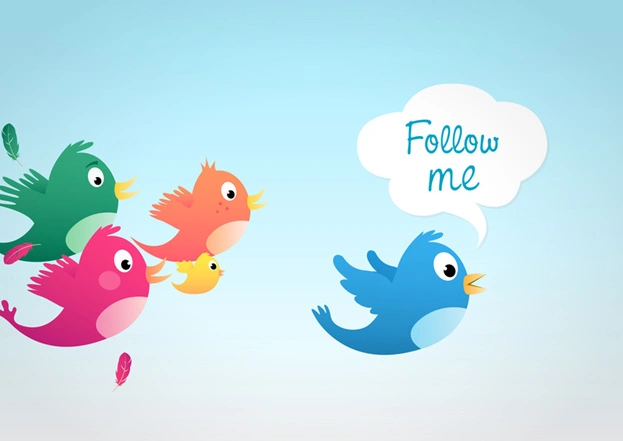As we already told you before, social media present one of the greatest tool of promotion. But sometimes the networks can be dangerous for your works. That’s why you have to be aware that your content is defenseless in the web unless you provide it with thorough copyright protection.
Risks of posting your photos on social networks
Your rights online depend on what the terms of agreement are. Everyone knows, they’re too long to read. Unsurprisingly, some users involuntarily agree that their work could be freely distributed by any other visitor of the site.
The first thing a photographer should realize is that anything one can see on the web can be copied. Before granting a website access to your works of art you should read the Terms of Service and decide if you actually feel okay about every rule. And the main condition you are to look for is whether or not the commercial usage of your content is allowed. In most cases this is prohibited, but some resources allow anyone to take a picture, copy it, use in any way and even start selling it. You’ve got to read the rules to decide if you are ready to permit that.
Stealing is, in fact, very widespread online. The thing is that today visual content (as well as any other kind of digital work) is very easy to copy technically. Legal rights seem to lose their power when it comes to protection of works posted online. In the Internet quite a lot of people genuinely consider, that using some of your lovely photos for the cover of a brochure is alright.
If you discover someone stole your photo, you may send them a letter and they will probably apologize, though the content would’ve already been used. Maximum you can achieve is that your image won’t be put anywhere else. But the more likely scenario is that you’ll never find out about how to deal with such a situation. That’s not easy and takes plenty of time to enforce legal rights.
Agreeing to terms of service is a valid and enforceable contract, and this means you are actually subject to all you’ve agreed to by clicking “Okay” button. Even if you didn’t read all the small print lines.

Image © Thomas Pajot – Fotolia.com
Terms of some social networks
How do you find out what copyright policy is applied to your photos on Facebook, Flickr, Pinterest, Twitter, G+ and other social media? Photographers should first of all take three things into account when reviewing a license: its reach, its scope and restrictions it involves. Let’s review some of these and other characteristics from Terms of Service of different networks.
The most popular networks for photographers are Pinterest, Flickr, Google Plus, Facebook and Twitter.

Image © peshkova Fotolia.com
Pinterest policy is quite clear: “If you post your content on Pinterest, it still belongs to you but we can show it to people and others can re-pin it”. They also point out: “Copies of content shared with others may remain even after you delete the content from your account”.
If you delete your account or remove any content, it may be retained by Pinterest “for a commercially reasonable period of time”. Moreover, other visitors may continue to use, store, display, modify and distribute any of your work. Though Pinterest is positioning itself as trademark-friendly service, within this site your content may be used by everyone. But if you are concerned about infringement you can fill in a special form and report about it.
Flickr
Flickr is perhaps the service which is recommended to photographers most often. It has variable licensing options and very clear formulation of use: “Photos and/or images found on Yahoo! Images or Flickr are the property of the users that posted them. Yahoo! cannot grant permission to use third party content. Please contact the user directly.”
In addition, you can choose from a whole set of licenses. All the Flickr users are subject to Yahoo!’s terms of use. Finally, you can specify to whom your photos will be accessible – from free public access to private.
Google+
Google warns about “adaptations or other changes we make so that your content works better with our Services.” However, “this license continues even if you stop using our Services.” That also means that they may store your content and user info for a long period of time and even use it in all current and future services. The good news is that Google gives you a chance to discard all the personal info from a service if it is discontinued. The service also provides the archive with previous versions of their terms.
If you once gave Google the license to deal with your content, it is retained even after you stop using the service. This is a default setting for all Google services, though it’s reasonable only for few of them, like Google Maps.
The Facebook terms and license are very broad. It allows any public content to be used but does not define what “use” means. Anyway, Facebook can transfer the license to others, which is called “sublicense”. The license also continues even when you stop using the service. The only way to avoid it is to make sure that everyone else deletes your content they may have.
Facebook automatically shares your data with such services as Bing, Rotten Tomatoes, Scribd and many others. This option, however, can be switched off.
Another disadvantage of Facebook policy is that it doesn’t allow using pseudonyms. You should give your real name only.
Twitter’s policy has a lot of advantages. The service deletes tracking data in maximum ten days. It even promises to inform you when your data is requested by the government (if it’s legal). Twitter does not require the usage of cookies to operate properly and it also saves archive of previous versions of ToS.
As for the drawbacks, the critical one is that the copyright license is really broad. There are almost no limitations, and Twitter has the right to license to others (“sublicense”). If you decide to delete your account, Twitter has all the rights on your content within 30 days after that.
Instagram suggests a very broad content license, which was updated this year. Today Instagram has the right to license content to others on their terms. Instagram can also change the terms any time with notification in advance.
How to protect your work in the web?
Actually, this is the topic of another article. But there are still a couple of key points here. First, don’t forget to learn about copyright policy of a site you are going to use for promotion. Then, restrict access to the most of your images. And, finally, watermark photos – this is the most reliable and the easiest way to ensure copyright protection so far.
 Visual Watermark
Visual Watermark
 by
by 